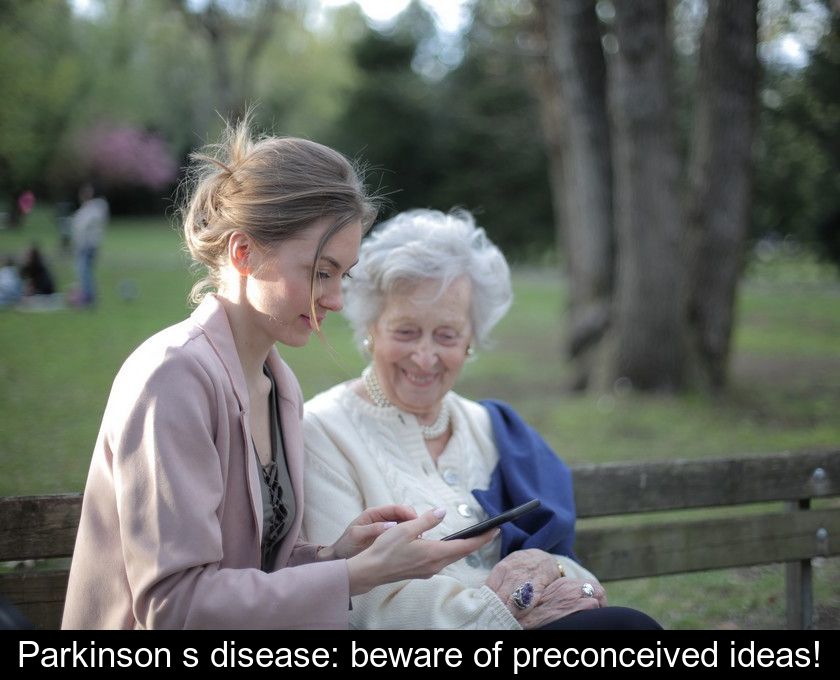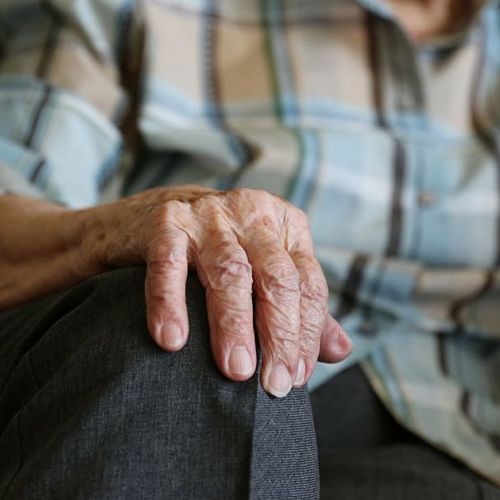Parkinson's Disease: Beware Of Preconceived Ideas!
Everyone has heard of Parkinson's disease, but few people know precisely the incidence and symptoms of this chronic neurodegenerative disease. On this April 11th, World Parkinson's Day, we have listed 5 misconceptions that are still too often heard about Parkinson's patients.
"Parkinson is a rare disease."
If you classify Parkinson's disease as a rare disease, you are really far from the truth! In France, nearly 300,000 people are affected by this neurodegenerative disease. This pathology affects 1 adult out of 250 and is the second leading cause of motor disability after strokes or cerebrovascular accidents. Even more worrying, the number of patients affected is constantly increasing and 25,000 new cases are reported each year.
2- This disease only affects elderly people.
According to another widespread misconception, Parkinson's disease only affects older people... But in fact, this statement is completely false! 30% of Parkinson's patients are affected by the disease before the age of 60. Some patients begin to show symptoms as early as 40 or even 30 years old. Generally, the first signs of the disease appear around the age of 60. That's why the majority of Parkinson's patients are seniors.
3- Tremors are the main symptom of the disease.
Most people associate Parkinson's disease with tremors. Even though resting tremor is the most visible sign of the disease, one third of affected patients do not tremble at all.
Very often, people who have tremors think they are suffering from Parkinson's, but it may simply be anxiety, excessive caffeine consumption or a withdrawal symptom from alcohol for example...
According to doctors, this symptom is not the most common and other characteristic signs of the disease are much less known to the general public. This is notably the case with slowness of movements (which affects 9 out of 10 patients) and sensations of stiffness (which handicap 85% of Parkinson's patients).
Furthermore, psychological disorders such as anxiety, stress and depression are also symptoms of the disease. It is estimated that depression affects more than 50% of patients who have just been diagnosed with Parkinson's.
4- This disease affects memory.
Unlike Alzheimer's disease, which is a well-known neurodegenerative disease to the general public, Parkinson's disease does not affect memory.
This misconception is the result of confusion between Alzheimer's and Parkinson's, which are two distinct pathologies.
Parkinson's patients do not have memory problems but have difficulty concentrating and planning. If they are not attentive, they have difficulty retaining information, which can give their loved ones the impression that their memory is affected.
5- This disease cannot be cured.
Parkinson's disease cannot be cured, but it is not fatal and it is possible to live with this condition until the end.
Even though we do not know how to cure this disease, it can be treated with medication as well as physiotherapy and speech therapy sessions.
For about 10% of patients, it is also possible to undergo a surgical procedure called deep brain stimulation. This intervention involves implanting two electrodes in the brain to stimulate the area affected by the disease, significantly improving the quality of life of Parkinson's patients.
When the disease is diagnosed at an early stage, one can continue to live almost normally. Patients must obtain a favorable medical opinion to be able to continue driving.
On the other hand, there is no contraindication to doing sports such as adapted gymnastics, yoga, walking, table tennis or swimming. It is even strongly recommended to continue physical activity by adapting its practice according to the stage of the disease.
Doctors now know that the more patients move, the more they retain their motor functions and autonomy for a long time. Studies have shown that adapted physical exercises can improve mobility, balance, muscle strength, and cognitive functions of patients.






